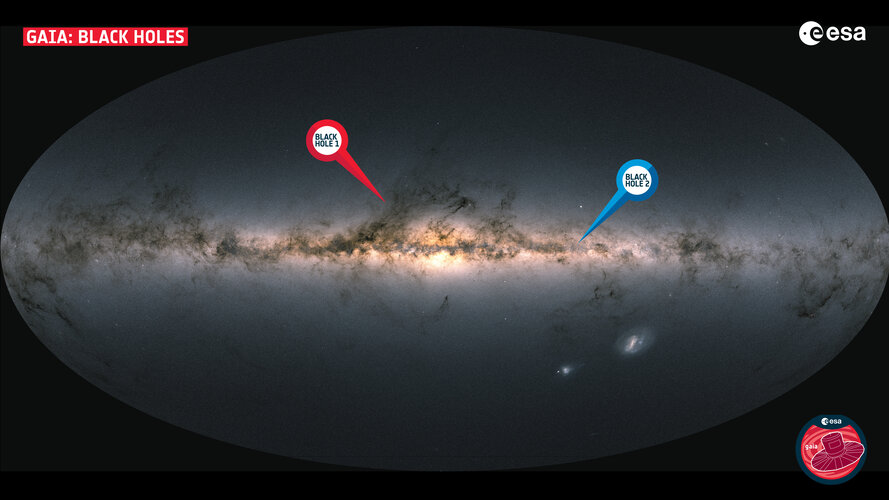New population of black holes
Using data from ESA’s Gaia mission, astronomers have discovered not only the closest but also the second closest black hole to Earth. The black holes, Gaia BH1 and Gaia BH2, are respectively located just 1560 light-years away from us in the direction of the constellation Ophiuchus and 3800 light-years away in the constellation Centaurus. In galactic terms, these black holes reside in our cosmic backyard.
The two black holes were discovered by studying the movement of their companion stars. A strange ‘wobble’ in the movement of the stars on the sky indicated that they are orbiting a very massive object. In both cases, the objects are approximately ten times more massive than our Sun. Other explanations for these massive companions, like double-star systems, were ruled out since they do not seem to emit any light.
Until recently, all the black holes astronomers knew of were discovered by emission of light – usually at X-ray and radio wavelengths – produced by material falling in. The new black holes are truly black and can only be detected by their gravitational effects. The distance of the stars to the black hole, and the orbits of the stars around them, are much longer than for other known binary systems of black holes and stars. Those closer star-black hole pairs, called X-ray binaries, tend to be very bright in X-ray and radio light, and thus easier to find. But the new discoveries suggest that black holes in wider binaries are more common.
“What sets this new group of black holes apart from the ones we already knew about is their wide separation from their companion stars. These black holes likely have a completely different formation history than X-ray binaries,” explains Kareem El-Badry, discoverer of the new black holes and researcher at the Harvard-Smithsonian Center for Astrophysics in the US and the Max-Planck Institute for Astronomy in Heidelberg, Germany.



